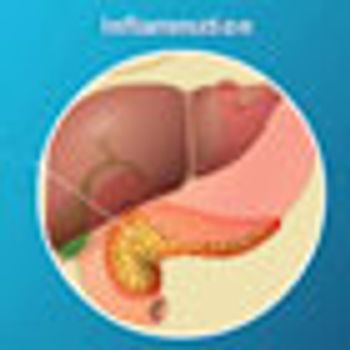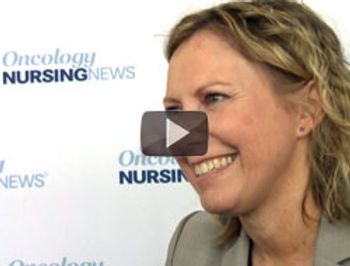
When motivating people to get screened for cancer, fear may not be the best way to do it.


When motivating people to get screened for cancer, fear may not be the best way to do it.

Changing the administration schedule for gemcitabine plus nab-paclitaxel (Abraxane) from weekly to every other week significantly reduced side effects without impacting efficacy as a frontline treatment for patients with metastatic pancreatic cancer, according to a retrospective study presented at the 2015 GI Cancers Symposium.

Researchers from the Case Comprehensive Cancer Center have discovered new gene mutations that are unique to colon cancer in African American patients, who have the highest incidence and death rate from the disease.

Patients with newly diagnosed metastatic colorectal cancer (mCRC) who had higher levels of vitamin D in their blood lived a median of 8 months longer and experienced greater disease-free survival after their cancer treatment

Decline seen for older adults but rates are rising for young adults.

The Colon Cancer Alliance is holding a summit, titled "Fighting a Smarter War on Colorectal Cancer" on December 4-6th.

Families are communities within themselves-full of intrigue, adventures, worries, joys, and assorted characters.

Findings from two studies are shining a light on demographic and socioeconomic factors impacting who will be diagnosed with colorectal cancer (CRC), who is more likely to die from it, and what preventive measures might make a difference.

A list of events for the month of November

The Colon Cancer Alliance will be awarding 20 individuals with $300 each to help offset the cost of receiving a colonoscopy.

Patients with certain lung and colorectal cancers whose physicians participated in weekly, treatment-focused tumor board meetings had improved survival and were 60% more likely to enroll in a clinical trial

As new therapies enter the treatment landscape for metastatic disease, the role of the oncology nurse becomes even more critical in educating patients about what side effects to look out for and the importance of reporting any adverse events promptly.

A new study has found that obesity and high inflammation during adolescence was associated with an increased risk of developing colorectal cancer later in life

The Screen This Too! campaign, created by the Colon Cancer Alliance, expands the awareness and prevention conversation. Simple in concept, broad in scope – this campaign encourages you to not only think pink during October, but to consider your colon too.

Two active maintenance regimens following disease stabilization with standard induction therapy demonstrated superior disease-free outcomes compared with no treatment in patients with metastatic colorectal cancer

A study conducted by researchers at the Mayo Clinic has found that family conflicts and other nonmedical problems may raise their risk of complications following cancer surgery.

The event addresses the management of symptoms and complications of chronic pancreatitis.

The National Pancreas Foundation (NPF), a nonprofit organization that provides hope for those suffering from pancreatitis and pancreatic cancer, has announced that it will build the first-ever national patient registry devoted to all pancreatic diseases, including pancreatic cancer and pancreatitis.

Frontline therapy with bevacizumab or cetuximab combined with either FOLFOX or FOLFIRI yielded a comparable survival benefit of approximately 29 months in patients with KRAS wild-type metastatic colorectal cancer (mCRC), according to results from the phase III CALGB/SWOG 80405 trial.

Cologuard is indicated to screen adult men and women aged 50 years or older who are at typical average-risk for CRC

The National Pancreas Foundation (NPF) provides hope for those suffering from pancreatitis and pancreatic cancer through funding cutting-edge research, advocating for new and better therapies, and providing support and education for patients, caregivers, and healthcare professionals.

The FDA has approved Cologuard as the first noninvasive stool-based DNA test for the detection of colorectal cancer (CRC) in asymptomatic individuals at average risk, based on clinical trial results demonstrating superiority to the fecal immunochemical test (FIT).

Several new genetic risk markers in pancreatic cancer have been found, scientists at the Dana-Farber Cancer Institute announced.

Researchers now have a better idea of how a mismatch in the DNA repair protein can lead to the development of colorectal cancer.

Linda Grush, Illinois chapter president, Debbie's Dream Foundation, explains what happens when a patient with stomach cancer reaches out to the foundation for more information.